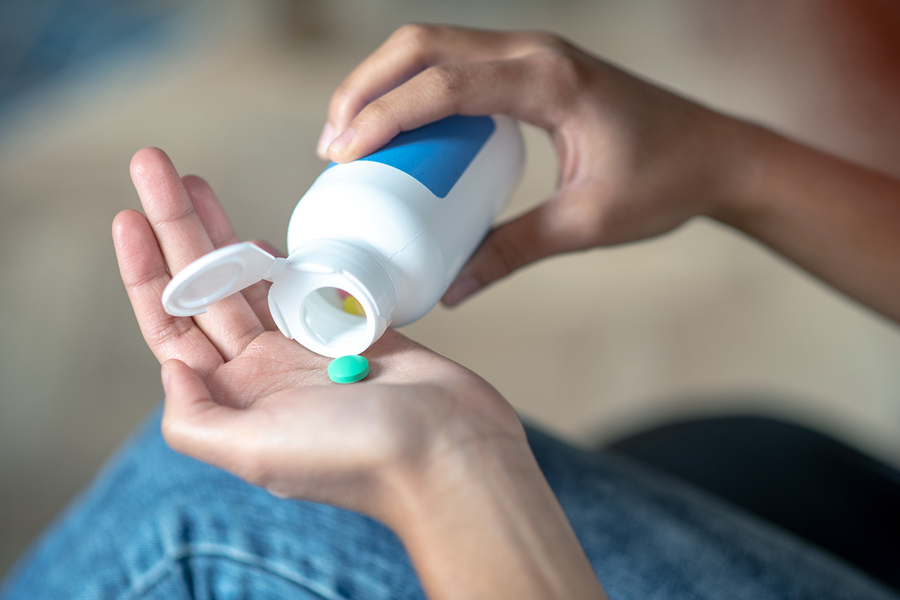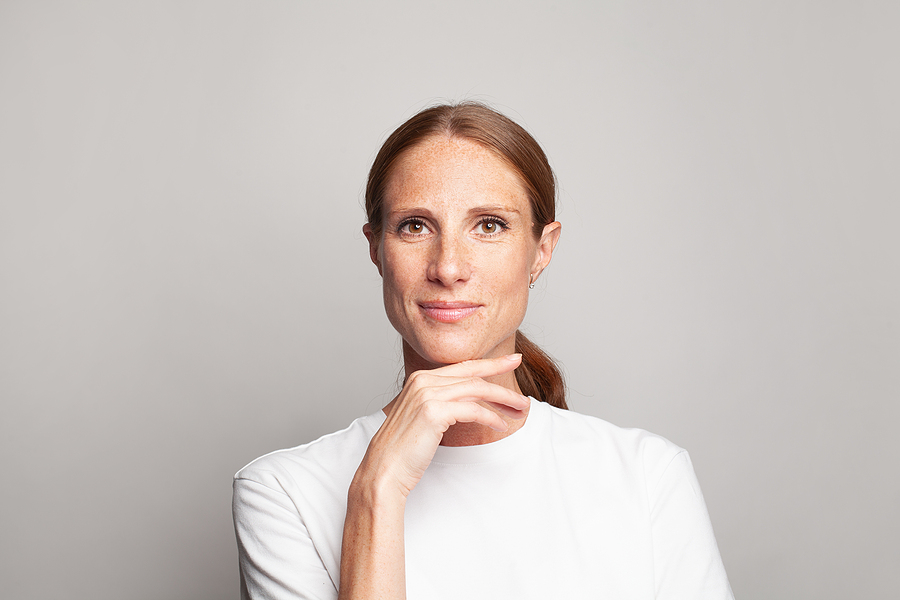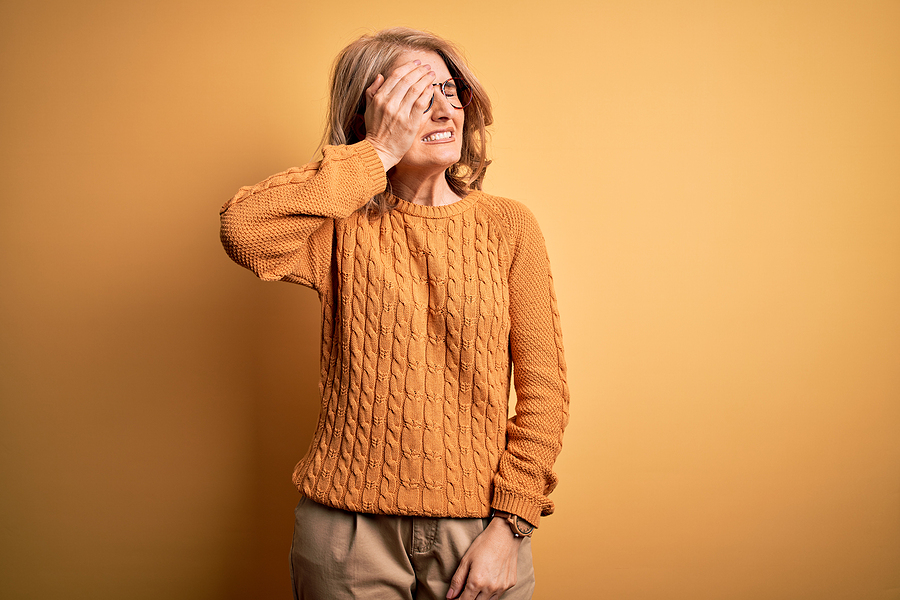There’s no doubt the world is in a crazy state right now. So many of the women I know are heartbroken at the hate, anger and destruction they see on the news (and many, right in their own backyards). When you combine all that with the constant underlying threat of COVID-19, and the isolation so many have experienced as a result, it wouldn’t surprise me at all to learn that depression is rearing it’s ugly head even more than usual.
Depression is a serious mood disorder. Statistics from the CDC indicate that between 2009-2012, 7.6% of the US population had experienced depression in any two-week period. 9.3 % of medical records from physician’s offices indicated depression in 2016, and in 2017, 9.4 % of emergency department visits had depression indicated on the medical record.
An NCHS data brief shows that antidepressant use has been on the rise for decades, increasing almost 65% over a span of 15 years. While the increase was similar among both males and females, at every point measured, females were almost twice as likely to report that they’d used antidepressants in the past month.
Antidepressants are used not only for the treatment of depression, but for other conditions such as eating disorders, insomnia, chronic pain, and anxiety disorders. Often, people take antidepressants long term. That same data brief indicated that nearly a quarter of people who took antidepressants had been taking them for 10 years or more.
There’s no doubt that for some people with severe depression, antidepressants are the best option. However, it seems that turning to prescriptions has become the “easy fix” for many conventional medical practitioners. If you’ve been reading my articles for any length of time you’ll know that these drugs really don’t fix anything. What they do, however, is mask the symptoms to allow for normal functioning, at least temporarily. But what are the consequences of relying on antidepressants rather than exploring the root causes of the condition?
My goal is always to address the real problem and find natural healing solutions. So, let’s take a quick look at what depression is, the connection hormones have to the condition, and other root causes of depression. Then we’ll look at what antidepressants can – and cannot – do, and how they impact the hormonal balance so essential to vitality and health. Finally, I’ll give you some suggestions on how to restore balance and improve depression naturally – no antidepressants needed.
What is depression?
Sadness, grief and similar emotions are normal; everyone experiences them sometimes. But depression is a much more serious issue that can’t be “pushed through” or ignored, no matter how hard you try.
The American Psychiatric Association, defines depression as a common, serious medical condition that impacts how you feel, think, and act in negative ways. Depression can cause lack of interest in previously enjoyable activities, and make functioning both at home and work difficult; in serious cases, typical functioning is nearly impossible.
Symptoms of depression range from mild to severe, and can include changes in appetite, fatigue, lethargy, difficulty sleeping, poor concentration and decision making, and feelings of guilt, shame or worthlessness. Severe cases can also result in thoughts of death, and thoughts or attempts of suicide.
Clients have described their depression to me as feelings of hopelessness, disconnection, and despair that never subsides. Pain and fatigue make it difficult to even get out of bed. They know they have a problem, but can’t see a way out.
A couple of bad days doesn’t mean you have depression, but if at least four symptoms linger for two weeks or more, your health care provider may diagnose you. And often, a diagnosis means a prescription.
The Link Between Hormones and Depression
Every woman is unique, and myriad factors can have an impact on depression and anxiety. Genetics, brain chemistry, medication side effects, trauma, and societal expectations are just a few things that can play a role in depression.
But the fact that women experience this condition so much more frequently than men makes it clear that there is a connection between hormones and depression.
Our bodies are full of hormones that carry important messages and have an impact on vital functions. When these hormones aren’t properly balanced, many uncomfortable conditions can result – including depression.
Research has shown that female reproductive hormones, including estrogen and progesterone, impact parts of the brain connected to mood regulation and behavior. An imbalanced ratio of estrogen to progesterone can become a serious problem, known as estrogen dominance.
Hormones produced by the thyroid and adrenal glands (especially cortisol) can also have significant impact on mood, as can DHEA, the so called “feel-good hormone.” Remembering that often the adrenals can be a driver of this imbalance.
Looking at hormones in connection with depression, patterns can emerge. Hormonal imbalances impact mood and depression can impact hormone levels – it’s one of those crazy cyclical relationships. That’s why comprehensive testing is so crucial when women present with mood-related issues. It’s the only way to have all the information necessary to treat the problem, not just the symptoms.
What impact do antidepressants have on hormones?
Many hormones, especially estrogen, testosterone, cortisol and DHEA have a relationship with serotonin, the “happy hormone” so often discussed in conjunction with depression. Popular antidepressants work to increase serotonin, counteracting the mood impacts of serotonin deficiency.
But the relationship between neurotransmitters and hormones is complex, and often reciprocal. Serotonin and serotonin receptors act in the hypothalamus to stimulate production of CRH, which is a key player in the cortisol-activation cascade. Does this suggest, then, that as antidepressants increase serotonin, cortisol levels are also influenced? It’s certainly worth considering.
The reciprocal relationship between neurotransmitters and hormones indicates there’s nothing straightforward about the impact of prescriptions on hormone levels. And I return to my original question: What are these antidepressants doing to address the reasons for the deficiency in the first place? Nothing. They’re “fixing” the result of a problem (hormonal imbalances) not the problem itself. In that way, antidepressants can be making the imbalances worse, by ignoring them for far too long.
Fortunately, I’ve found better ways of addressing the mood issues experienced by many of my clients. There are several natural strategies that can make a big impact on depression and anxiety without a prescription.
Related article: Postpartum Depression in Women
6 natural solutions for dealing with depression
In my view, it’s best to try natural solutions first, with prescriptions a last resort. Taking medications first makes it very difficult to determine if the problem is solved, or just covered up until the medication is stopped. And staying on medications long term can have some serious side effects that may be as bad as the original problem – or worse! Here are six suggestions for balancing hormones and mood naturally.
Support your body with nutrition, sleep and exercise
These three lifestyle habits are the main foundation for good health. Paying attention to each one can keep hormones balanced – and moods stable.
Good nutrition means choosing fresh, whole foods as often as possible. Avoiding excess salt, unhealthy fats, processed foods, caffeine and alcohol can all make a big difference in how you feel. Many essential vitamins and minerals boost mood, including B vitamins, Omega-3 fatty acids, and iron. Eating on a regular schedule keeps blood sugar stable, helping avoid irritability and upset. Because it can be difficult to get all of the nutrients your body needs to thrive, I recommend taking a daily high-quality multivitamin.
Sleep is also essential to hormonal balance and improved mood. A regular bedtime with an established, relaxing bedtime routine is important. Turn off electronics an hour before sleep and create a calm, peaceful sleeping environment that is cool and dark. Try to dedicate at least 7-8 hours to sleep each night.
There’s a clear connection between regular exercise and increased energy. Some studies have even shown that exercise can have as much impact as antidepressants on decreasing fatigue and boosting energy. As long as you’re keeping exercise to a reasonable level, there are few negative side effects (though if you are dealing with adrenal imbalances, you may need to stick to very gentle exercise for a while). The best part is that you can get the appropriate amount of exercise without fancy equipment, expensive memberships or vast amounts of time. Even a brisk 20-minute walk will help!
Support your gut health
Gut health is linked to almost every other aspect of health – including depression. Functional psychiatrists recognize this, and always ask about mold, toxicity and bacterial balance in the gut when working with patients who have symptoms of depression. One of the best ways to support proper digestion and gut balance is to take a regular probiotic supplement, along with eating foods high in both probiotics and prebiotics. Other ways to support your gut include eating mindfully and as clean as possible (no processed foods) and proper stress management. I also recommend specialized testing to identify hidden food sensitivities or microbiome imbalances, as well as checking for a magnesium deficiency and, if needed, adding a magnesium supplement.
Embrace sunshine
Another important vitamin for boosting serotonin and improving mood is Vitamin D. Your body manufactures vitamin D when exposed to the sun’s UVB rays – without sunscreen! While too much time in the sun can be dangerous, just a couple of hours of unprotected exposure can keep Vitamin D levels consistent. It can be difficult, particularly in some regions and seasons, for your body to produce enough Vitamin D because the sun’s rays simply aren’t strong enough. So a Vitamin D supplement can also make a big difference.
Focus on others
Research has indicated that volunteering can lead to improved mental health, especially for people over the age of 65. Engaging in service to others can help move you out of your own head and away from a focus on your own troubles. While regular volunteer work can be immensely satisfying, even one-time assistance, such as helping a friend in need, can make a difference.
Don’t try to “tough it out”
Fear of stigma, embarrassment, or uncertainty about where to turn can leave women isolated and trying to deal with depression on their own. I can’t emphasize enough how important it is to reach out for support. It can be professional help such as therapy or simply talking with trusted friends to find new perspective. The important thing is that you reach out and recognize you are NOT alone, and help is available. A trusted health care professional can also help you identify what’s behind your changes in mood, whether hormonal imbalances or other root causes.
Find stress relief and joy
There’s a lot of suggestions on how to reduce stress, including deep breathing, mediation, mindfulness and yoga. While I believe all of those are helpful, I think we need to take it a step further. You must find things you love in life and participate in those frequently. We are all so different, so what relieves stress for one may actually cause anxiety in another. What you choose isn’t important; how it makes you feel IS! Forcing yourself to do something you hate won’t help. Finding something (whatever it may be) that brings you true joy will!
You can find many other suggestions on stress relief and self-care in the articles in my health library. My mission is to help women live their best lives, free from hormonal imbalances and the uncomfortable symptoms that result. Depression is a serious issue that shouldn’t be ignored, but antidepressants aren’t the only (or the best) answer for most women. Taking control of your lifestyle habits and finding natural solutions for healing can help you live the life you deserve – in peace and happiness!







